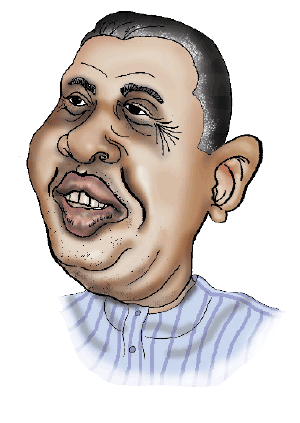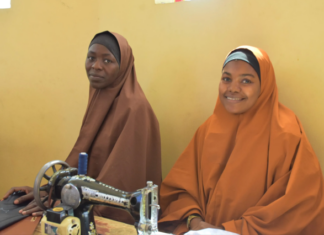It gets curiouser and curiouser as Alice was wont to observe in her trawl through wonderland. The wonder bit never ends, bringing forth with it all manner of intriguing possibilities.
It is certainly intriguing to ponder how on earth the delightfully erudite Williams attained such eminence as a scholar, journalist and novelist without going through secondary school.
Adebayo Williams is not your old-fashioned run-of-the-mill school drop-out. The school drop-out syndrome, we may care to recall, was quite pronounced in the 1960s. There was all manner of social reasons which induced the drop-out syndrome. In the case of Williams, the reason was political. Although, it was certainly not of his own making, he was inadvertently caught up in the wild vindictive politics of Nigeria’s Western Region of the 1960s. Williams senior was a prominent member of the Nigerian National Democratic Party (NNDP), the party that came out of the split in the region’s hitherto governing party.
The rupture, as is well-known, had to put it mildly, very unpleasant effects. With the contrived uprising “Operation Wetie” in full swing, the family house was burnt down and everything just collapsed. In a reflection of the bad belle of the time, the perceived “sins” of the father was visited upon the son. For many, it was the worst of times.
Hitherto, as a result of his precocious brilliance, Williams had entered secondary school on a scholarship. Unfortunately, in the ensuing tit-for-tat, young Adebayo was caught up in the crossfire. The scholarship was the first casualty. Quite a major one; for Williams senior was not at that moment in a position to help out.
Life itself, John F. Kennedy wryly observed, “is unfair”. Nonetheless, our subject was not to be deterred. He could have justifiably hung around the motor parks… that sort of thing. On the contrary, he showed great character and went, instead, for self-help.
“I made a vow that my colleagues would not take their GCE O’ Level School certificate ahead of me. I made another promise that if they were ever going to the university at all, they would not get there ahead of me, and I was able to fulfil it. So I started training myself from 1966.”
This shows abnormal will power, guts and determination. It was actually a coup inducing him to even think, let alone talk, about that sad era. “Yes; there was a cousin of mine who looked very much like me and they almost killed him. They thought it was me. But you know what? While I was studying at home, I was going everywhere. I was in Ibadan, I was in Lagos. I don’t normally talk about this, because this is the first time. I just want it to remain like that.”
Surprisingly, there are no psychological scars. Just a burning passion for justice, for social order. Ironically, he ended up in, of all places, the pro-Action Group megaphone, The Nigerian Tribune. It was an exhilarating experience. Quite a high-point.
Why on earth The Nigerian Tribune, given the configuration of that time?
“Of all places? Because I wanted to find out more about Chief (Obafemi) Awolowo. I had suffered so much because of him. And I said that I wanted to find out about this gentleman. So I started applying to The Nigerian Tribune, even while I was studying at home. And as soon as I dropped my pen in 1969 for the external WAEC, I resumed the ambition to go to that newspaper and it yielded good fortunes.
“By early 1970, I started work with The Nigerian Tribune, and I rose so fast that in 1971 I was already the sub-editor; I was already in the inner room of editorial writing and my colleagues who entered with me were about three steps below me by the time I was leaving for the university.
“So I got to know and I came to the conclusion that in terms of the masses’ uplift, Awolowo was right. But I am not in support of political terrorism to coerce opponents, which was what they did at that time. I thought that went a bit beyond imagination. And I have never looked back. I have been either an overt or covert. That is probably the difference between the Fani-Kayodes of this world and I.
“Look, in 1995 when I was going to appear at the Awolowo Foundation event in Lagos as the billed speaker, I went home to tell my dad, and the man looked at me and started crying – he couldn’t believe it,” he said.
Sadly, he did not get to meet Awolowo in flesh. Quite a miss! He is full of regrets about this.
His words: “There was a certain nobility of purpose and character to Awolowo. He died when I was on the verge of meeting him because he was making enquiries about me because I was writing for Newswatch (magazine) and he was wondering which Williams that was. Then they told him, and he was very curious.
“It is very interesting that the core Awo caucus had actually come back for some of us who are children of those who had left. For example, they offered me the post of Secretary General of Afenifere.”
He declined the offer.
Now fast-forward the historical sequence. Professor Williams has lived through it all. In actual fact, he has had a bird’s eye view as a participant-observer. It is quite in order to ponder how we have really come from the 1960s? The issues remain the same, as the more they appear to change, the more they remain the same.
Williams is full of regret that half a century after Independence, the nation is yet to create an effective form of government empowered to fully utilise its abundant resources. All around him, he observes power and privileges without responsibility; “a throwback of military prefectorship.”
Observing the unfolding political drama, are we then enacting our own Italian style osweto compresso or a historic compromise between sworn enemies and hitherto contending political forces? It is tempting, if we use this analogy to see the configuration of forces leading to the emergence of the All Progressives Congress (APC) as a nudge in this direction.
Professor Williams has thought deeply about this scenario.
“Let me make this observation; it is only when the Yoruba faction and the Hausa/Fulani faction collaborate at the same time in this country that we would have a modicum of peace and progress. I am talking of when Awolowo was brought into the cabinet by (Yakubu) Gowon. It may be that Awolowo, thinking deeply, might have some regrets, because, culturally, there is a lot between the North and the West.
“In fact, I can say that we are culturally joined because of some geography and proximity, and we are both empire-builders; so we know a lot of statecraft and the intrigues. You cannot have such major nationalities in perpetual opposition to themselves and expect to have peace. But in a sense, I have always thought that (Ladoke) Akintola was a better politician, because we could see that the way forward lies in terms of pragmatic accommodation of compromise with the North,” said he.
Despite this, the avuncular professor has reasons to be weary as pivotal elections approach. “We’d be lucky if we have a country that will have an election, very lucky. But Nigeria has a way of handling things. U.S. Senator, John McCain, said that the Americans would have come in earlier (to help in addressing terrorism) because he didn’t think they needed to obtain permission from what he termed a practically non-existent government. I hope the country won’t be practically non-existent, if we are not very careful.”
It is his opinion that the political establishment collectively does not have the political will to affect a quick internal resolution of the crisis. “The thing about some of us is that though our minds tell us not to be optimistic, the will continues to drive us. It is what that great Italian Marxist writer, Antonio Gramsci, calls retune. He says he is always driven by optimism of the will, but pessimism of the intellect.”
The ongoing national conference does not appear to offer a way out of the log-jam. The fresh four-week extension certainly does not stimulate optimism in Prof. Williams. In his view, another historic opportunity is being lost.
“Once I saw the composition of membership, I was sceptical. Like Asiwaju, I have always said we would need a conference that will look at some of these things in a fundamental way. As a matter of fact, I also thought that no matter what happens, the conference should not be stopped, even if it were to be a talk show, which is where I disagree with Asiwaju.
“It should not be boycott wholesale; you go there, you know that nothing is going to happen; but in case something happens, it will not be said that we weren’t there. If something dramatic is going to happen or were to happen, it ought to have been now!
You see the Chibok crisis; all these things presented them with a golden opportunity to assert. They slept through it. Because of the nature and the composition of the type of, you know, the vagabonds who are there, the few voices of patriotism are squashed in between. You have two contending forces of status quo here; the old Hausa/Fulani status quo, who are insisting that Nigeria can only be restructured on their dead bodies and they want to leave us in this structural status quo, and the new hegemony of Jonathan who wants to continue to rule Nigeria by all means and leaving us in a democratic deadlock like this. Although the two have their different aims and ambitions, they are in unity of not wanting a change; so there is nothing anybody can do.”
How on earth do we get out of the deadlock then?
“Nothing! Look, Balarabe Musa asked a question that nobody has answered, about two weeks ago. He asked why, at the moment we are supposed to be having a national conference, we are having all these unwholesome developments which the national conference was supposed to take care of. If there had been a genuine national conference, and you have Boko Haram, there would have been no abduction; there would be no Chibok. There would have been a ceasefire. So the fact that you do not have that simply means that you are just having a charade, very expensive one.”
And so it is that we trudge on. Mercifully, Prof. Williams will be there to act as a guide. He is certainly not for turning! The avatar is not going to up it and check out like the celluloid ‘Andrew’.
“I think I’d rather prefer to go under here than stay abroad, if you ask me. Even while I was in exile, I knew I had to come back and continue the struggle here,” he added.













